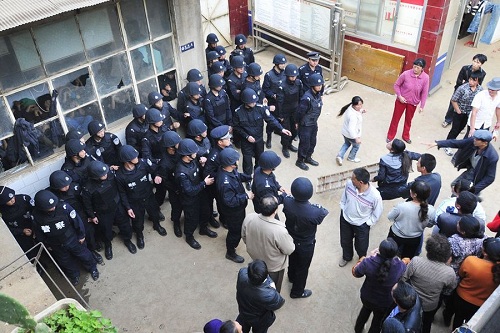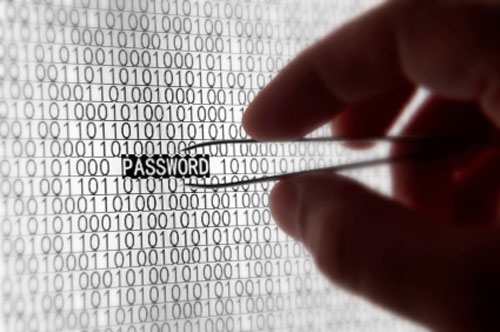Missing out on social events is a truth you will have to face when you start working in the graveyard shift. While your family and friends are lounging under the sun, you’re buried under your sheets after a long night in the office. Your social life is not the only thing that will change. You may notice and feel the impact of staying up all night to your body. For the first weeks, expect difficulties in sleeping, fatigue, and acidity—these are manifestations that your circadian rhythm gone awry.
Working during the graveyard shift is not that bad, really. You must know that aside from call center workers, health practitioners, firefighters, journalists, engineers and other professionals, are known as industrious night owls. The reality is, someone has to do their jobs. If you’re one of these employees, there are simple ways to mitigate the impact of working at night.
Here are six healthy lifestyle tips for graveyard workers.
Manage your sleep-wake cycle
Once you start your night shift, your circadian clock (more commonly known as your body clock) will be disrupted—you’re awake at hours your body demands to be asleep. The bad news is that you can never repay your “sleep debt.” Lost sleeping hours is lost forever. So how do you manage your sleep-wake cycle? Follow a definite sleep schedule and get adequate hours of shut-eye per day. The National Sleep Foundation recommends that adults aged 18 to 64 years sleep for seven to nine hours each day. Observe the same routine even on weekends.
Here are some tips to help your fall asleep after your shift:
- Avoid caffeine at least six hours prior bedtime
- Have a glass of hot milk or chamomile tea an hour before going to bed
- Turn off your electronic gadgets an hour before sleeping
- Draw your curtains or blinds down to block outdoor light
- Keep your room under cool temperature
Control your sugar and carbs intake

A healthy lifestyle is attainable regardless of your work schedule. A lot of day workers are exposed to life-threatening diseases because of their lifestyle choices such as sleeping too little and eating too much. When you work in the evening, your body craves for carbohydrates and sweets. Giving in to this will expose you to acidity, obesity, and even type 2 diabetes. How do you satisfy your hunger without stocking up on sugar and carbs you can’t burn? Strategize your eating habits. Have a main meal (aka, your breakfast) at least two hours before your shift. Your “lunch” and “dinner” should be composed of light snacks. Pack fruits, boiled vegetables, wheat bread, and energy bars.
Exert efforts to stay physically fit

Who says the call center industry is full of overweight and lousy-looking workers? Don’t use your graveyard shift as an excuse to skip exercise. Physical activity is one of the three pillars of health, together with a balanced diet and adequate sleep. Allot at least 30 minutes of your day for a trip to the gym or a stroll around the neighborhood. The US Department of Health and Human Sciences says that adults should be logging at least 150 minutes of moderate aerobic exercise or 75 vigorous aerobic activity per week. Have a piece of banana after sweating it out for a boost of vitamin B6.
Fight stress the healthy way

A part of getting physically fit is avoiding vices that pollute the body. Many night workers “try to stay awake” or fight stress by smoking. They say that nicotine has a somewhat calming effect. Those who struggle with their sleep-wake cycle use coffee to stay awake and alcohol to fall asleep. In some cases, coffee is substituted with energy drinks leading to heart palpitations, even hospitalizations. One important skill you must learn to survive the graveyard shift is to identify your stress signals. These can be irritation, gloominess or muscle ache. Once you recognize even the slightest hint of stress, step on the breaks. You may be rendering too much overtime work or missing out on your exercise routine. Talk to your supervisor or HR manager. Most call centers have stress management programs offered to employees for free.
Get your vitamin supplements

Graveyard workers are most likely vitamin D deficient. Although we get 90% of our body’s vitamin D from the sun (thus its nickname “sunshine vitamin”), you can take vitamin supplements to make sure you’re not missing out. According to health experts, every graveyard shift worker must take the following vitamin supplements:
- Melatonin, a sleep-inducing hormone
- Vitamin C (ascorbic acid), a powerful antioxidant that neutralizes free radicals
- Vitamin D, a vitamin that helps the body absorb calcium
- Vitamin E, an antioxidant that protects against cardiovascular diseases
Be in the present moment

Stress is your greatest enemy in staying productive. No matter how efficient you are (or, you believe you are), your work routine may eventually get into your nerves and lead to job burnout. Keeping a healthy lifestyle includes meditative activities such as yoga and breathing exercises. Mindfulness meditation is gaining popularity everywhere that a number of companies are starting to offer mindfulness trainings to their employees. According to mindful.org, “mindfulness is the basic human ability to be fully present, aware of where we are and what we’re doing, and not overly reactive or overwhelmed by what’s going on around us.” Simply, it’s being in the present moment—observe your surroundings, your breathing, and the sensations of your body. For a few minutes, stop thinking and just let your senses indulge in the colors, textures, and temperature around you.
During your call center hiring interview, you may have known the things to expect when working during the graveyard hours. Your social life will turn around (at least for the first few months until your family and friends learn how to get around your schedule), you’d experience biological changes as your body tries to adapt to staying up all night for most days, and your habits may change for better or worse. The final item will definitely be based on your choices. If you want to survive the night shift, you have to help yourself.




